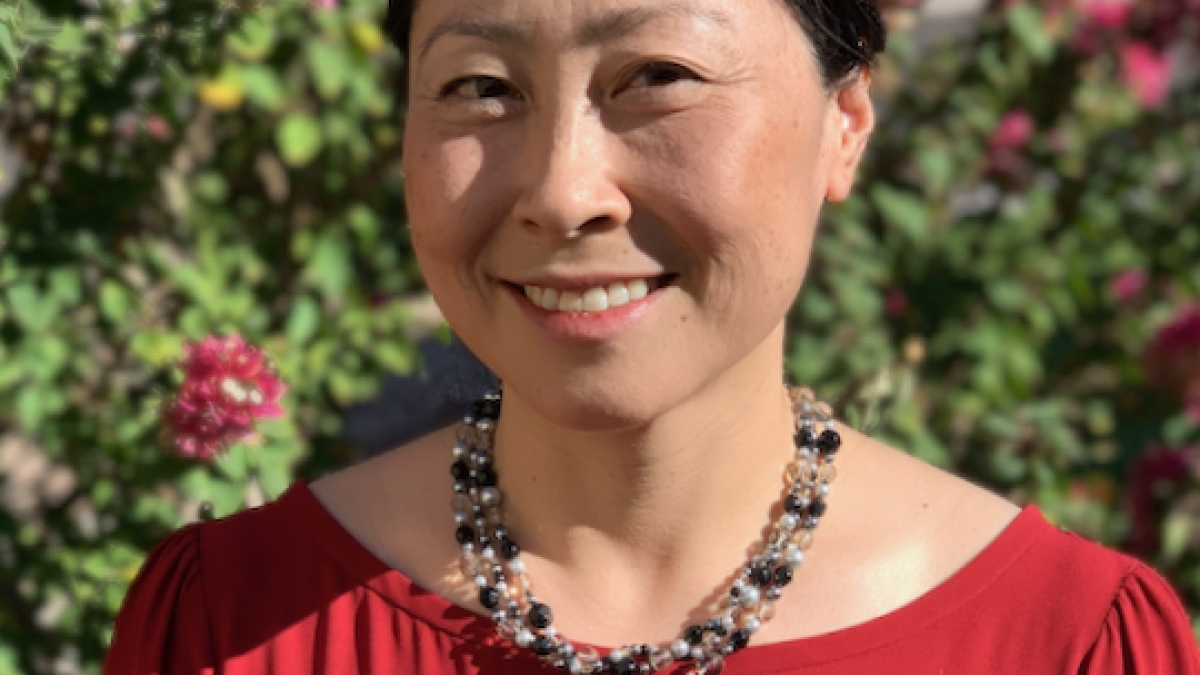ASU historian awarded National Endowment for the Humanities Fellowship

Associate Professor of history Julian Lim. Photo courtesy Julian Lim
Arizona State University Associate Professor of history Julian Lim recently received a fellowship from the National Endowment for the Humanities. Her project was among more than 200 others to be selected to receive support.
“I'm very grateful that the reviewers for the grant see value in my project, and hope to produce something that helps us better understand the roots of United States immigration law and the making of U.S. borders so that ideally we as a society can begin to imagine different possibilities in the future,” Lim said.
Lim’s project is titled “Powers to Exclude: Restriction in an Era of U.S. Expansion and Empire” and will be her second book that examines the origins of U.S. immigration law within a history of expanding borders, territorial anxieties and the U.S. empire.
“My goal with this book is to destabilize borders and the government's power to exclude,” Lim said. “What I am doing is tracing a history with how continuous it is. There was always a debate about whether the government could do this and how they could do this.”
From the 1870s to the 1920s, the U.S. underwent changes, as the borders in the post-Civil War West grew to encompass the groups of islands in the Philippines, Hawaii and Puerto Rico.
Lim’s research examines how turn-of-the-century Americans produced new ideas about the nation’s power to regulate immigration and spotlight the volatile landscape in which ideas about the nation’s right to exclude took root.
The idea for her book came in 2019 when she started to see how different versions of immigration law helped shape how the federal government handled expansion.
“I began to see the interconnections between federal immigration law, federal Indian law and territorial law in the late 19th century U.S.,” she said. “From there I began to familiarize myself with the scholarship on Native American history and the U.S. empire.”
Lim’s preliminary research consisted of examining legal doctrines and cases from the U.S. Supreme Court as well as interviews with immigrants coming to the country during those times.
While her research for the project is nearly complete, Lim still has a few trips to make before she can complete her project.
Lim plans to use the time of the fellowship to help complete the remaining research trips and get the rest of the book written once the research is done.
“It means a great deal to have the support of the NEH in this way. The NEH is one of only a few major national organizations dedicated to supporting humanities work, which is critical not only for the democratic future of our nation but also for each of us as human beings making our way through a complicated but also rich and diverse world,” she said.
More Arts, humanities and education

Grand Canyon National Park superintendent visits ASU, shares about efforts to welcome Indigenous voices back into the park
There are 11 tribes who have historic connections to the land and resources in the Grand Canyon National Park. Sadly, when the…
ASU film professor part of 'Cyberpunk' exhibit at Academy Museum in LA
Arizona State University filmmaker Alex Rivera sees cyberpunk as a perfect vehicle to represent the Latino experience.Cyberpunk…

Honoring innovative practices, impact in the field of American Indian studies
American Indian Studies at Arizona State University will host a panel event to celebrate the release of “From the Skin,” a…